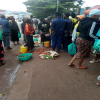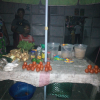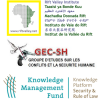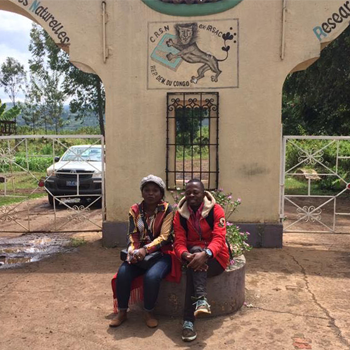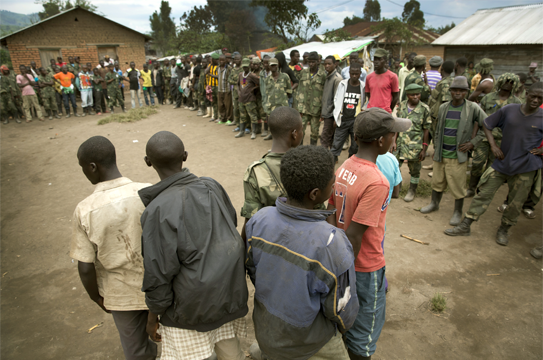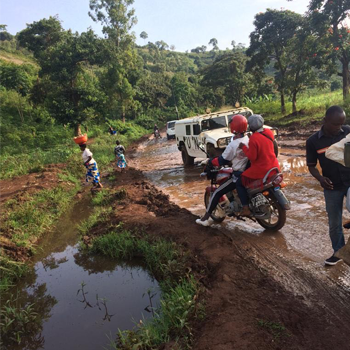Roadblocks—infamous for the informal fees travellers must pay—are often thought to be found exclusively in rural areas. Yet, as Evariste Mahamba shows in this blog, the harbor of Goma also has a history of roadblocks. Having become hotspots of…
News
SEARCH
NEWS TYPES
REGION
Within the city of Bukavu—as elsewhere in the Congo—many women earn a living selling goods and produce at the market or in the streets. In this blog, Alice Mugoli explores the different types of insecurity to which these women…
This blog post was written by Yolande Bouka and Marco Jowell, the Co-Directors of Studies for the Rift Valley Institute’s Great Lakes Field Course, which will be taking place in Ethiopia from 3-7 June 2019. Yolande and Marco will be joined…
In the city of Goma, numerous shop-keepers and street vendors—for instance, those selling phone credit, alcoholic drinks or food—work at night. As Alain Mukombe Misege analyzes in this blog, in certain quarters of the city of Goma—in particular, Kyeshero,…
This blog was written by Yolande Bouka and is part of RVI’s Research Collaboration project in partnership with the Groupe d’Etudes sur les Conflits et la Sécurité Humaine (GEC-SH) and funded by the Knowledge Management Fund of KPSRL. The project examines the political…
Between 2016 and 2018, civil society organizations in the city of Bukavu recorded 17 attacks on money-changers (cambistes), both on the streets and in their homes. Often in possession of large sums of cash, money-changers are a favoured target…
The growing insecurity in the city of Goma created by maibobo or street children, prompted the creation of the so-called anti-gang in 2007 around Virunga market. The anti-gang is a group of youth who ensure security in a particular…
This blog was written by Irène Bahati and is part of RVI’s Research Collaboration project in partnership with the Groupe d’Etudes sur les Conflits et la Sécurité Humaine (GEC-SH) and funded by the Knowledge Management Fund of KPSRL. The project examines the political…
The city of Goma, in North Kivu province, is home to numerous former child soldiers. After leaving armed groups that are active in rural areas, they often go to the city. This is because the communities where they used…
This blog was written by Elisée Cirhuza and is part of RVI’s Research Collaboration project in partnership with the Groupe d’Etudes sur les Conflits et la Sécurité Humaine (GEC-SH) and funded by the Knowledge Management Fund of KPSRL. The project examines the political…
Recent Publications

Political Economy of Cash and Markets in Sudan
February 27, 2026
The research provides a snapshot of the war in Sudan in the period from February to April 2025. However, the war is dynamic, with political alliances and territorial control changing. The April 2023 conflict between the Sudan Armed Forces (SAF)

Rethinking Ethiopia II: Youth and politics
February 26, 2026
Seminar report Rethinking Ethiopia, a collaborative essay competition initiative between Addis Ababa University’s Institute for Peace and Security Studies (IPSS) and the Rift Valley Institute’s (RVI) Peace Research Facility (PRF), offers a platform for Ethiopian youth to express their ideas

2025 Year in Review
February 16, 2026
The 2025 Year in Review provides an overview of the Rift Valley Institute’s work over the past year across eastern and central Africa. The report highlights RVI’s research and publication outputs, education and training activities, and public forums and convenings,


